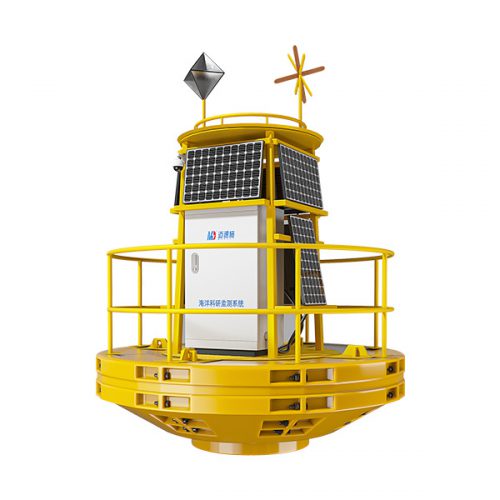The ocean buoy water quality monitoring station is a water quality monitoring system that uses buoys as carriers and integrates material science, sensor technology, and data transmission technology.
The buoy body is made of polyurea polymer elastic material, which has the advantages of flame retardancy, anti-collision, anti-corrosion, anti biological adhesion, and no sinking after perforation; The solar power supply system can work normally for 15 consecutive days in rainy weather; Support multiple data transmission protocols; Monitoring parameters are easy to expand, including water quality parameters (pH, ORP, conductivity, dissolved oxygen, turbidity, chlorophyll-a, blue-green algae, water oil, nutrients, ammonia nitrogen, COD, UV254, etc.), meteorological parameters (wind speed, wind direction, temperature, humidity, air pressure, radiation, rainfall, etc.), and hydrological parameters (water depth, temperature, flow velocity, flow direction, etc.). Applied to water quality monitoring of rivers, reservoirs, lakes, oceans, etc., monitoring and warning of algal blooms, red tides and algae, warning of sudden pollution accidents, ecological environment assessment, etc.
Technical features
Monitoring factors can be freely combined, including water quality, hydrology, meteorology, radiation, etc
Polyurea polymer elastic material, flame retardant, corrosion-resistant, anti-collision, and anti biological attachment
Equipped with navigation beacon lights and radar reflectors to prevent accidental collisions of ships
High buoyancy/weight ratio, displacement greater than 300kg
High performance solar cells and batteries with undervoltage, overvoltage, and overcurrent protection
Low power design, can work normally for 15 consecutive days of rainy and cloudy weather
GPS positioning function, multiple data transmission methods (CDMA, GPRS, etc.)
Long operating cycle, low maintenance, and ability to withstand extremely harsh weather environments






